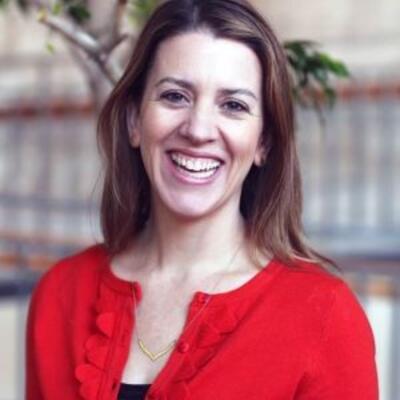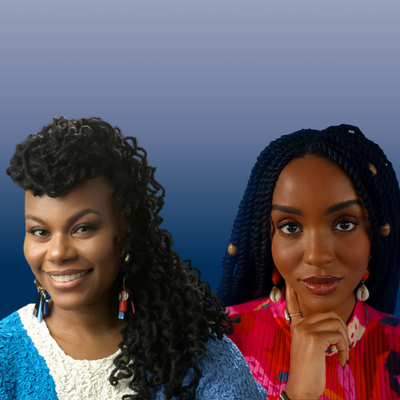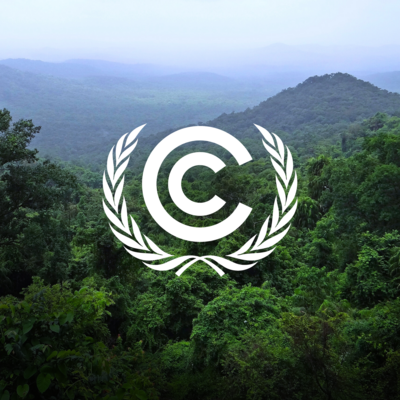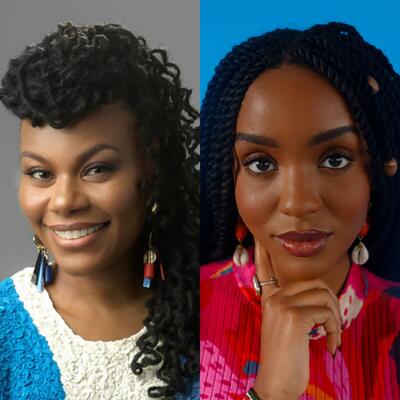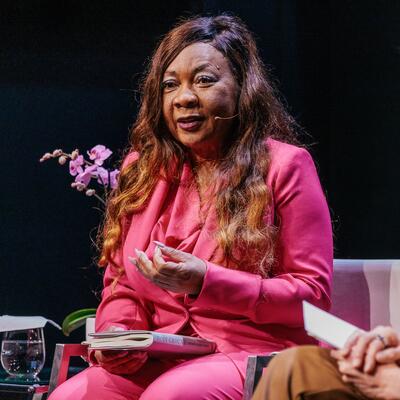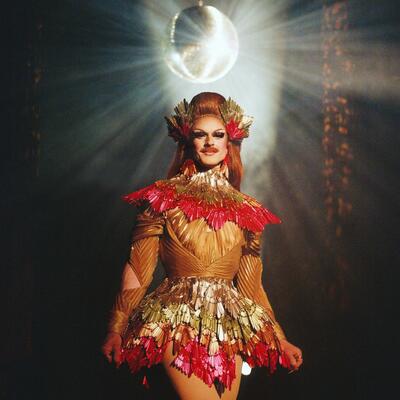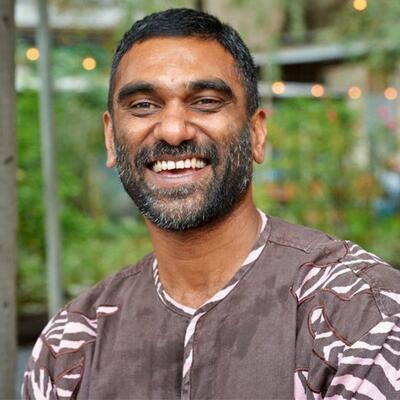
Diet for a Threatened Planet
Guests
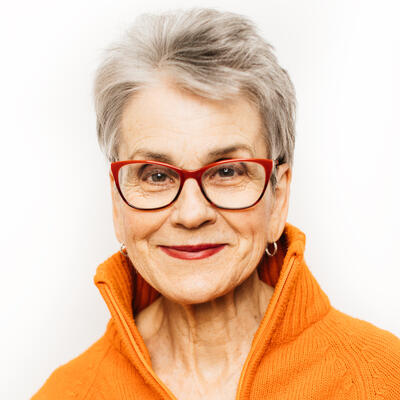
Frances Moore Lappé
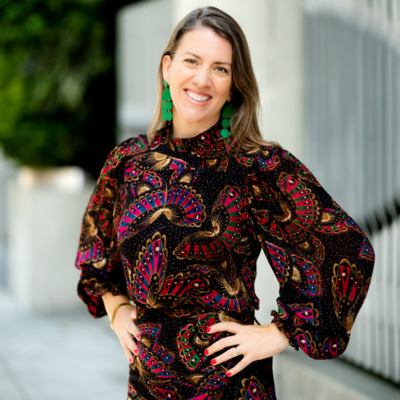
Anna Lappé

Analena Hope Hassberg
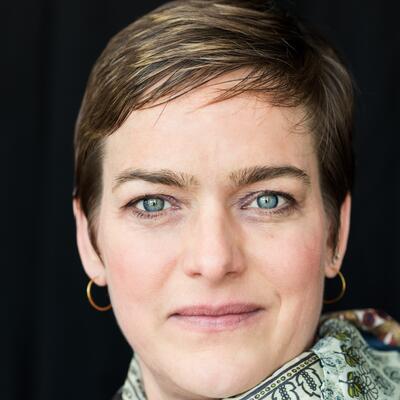
Ruth Richardson
Summary
Diet for a Small Planet is celebrating 50 years this fall. It’s been a hugely influential book in the environmental movement and has inspired countless people to adopt vegetarian diets.
Author Frances Moore Lappé says the book was sparked by an “aha moment” that occurred when she was 26 years old and a graduate student at Berkeley, when headlines were reporting the world was running out of food.
“And the big ‘aha’ was, we are actively creating scarcity, the experience of scarcity, for millions and millions of people...There is plenty, plenty of potential for all to eat well and I just had to tell the world,” Moore Lappé says. Her book was critical of the environmental damage and wasteful nature of industrialized meat production and offered solutions for combating global food scarcity through a plant-centered diet.
“Food has special power because we can’t buy a new solar panel every day, but we can choose what we put into our mouths every day,” Moore Lappé says. “It ties us to each other, to the Earth, to the climate...as we align those daily choices with the world that we want.”
Her daughter and fellow food justice advocate Anna Lappé is author of Diet for a Hot Planet, focused on the food system’s connections to the climate crisis. Together they now focus on the intersections between democracy, environment, food, and justice.
Anna Lappé says the consolidation of the industrial food systems and their influence on government regulations “makes it really hard for farmers to transition off of pesticides and synthetic fertilizers that are so bad for the climate, and that it makes it hard for everyday people to access the kinds of really nourishing nutrient-dense whole foods that we should all be eating.”
Analena Hope Hassberg is associate professor of Ethnic and Women's Studies at California State Polytechnic University whose research uses food to explore the racial, economic and structural factors that produce different health outcomes and life chances for residents in urban spaces. She’s also a contributor to the book, Black Food Matters.
“We’re in this moment where activists and scholars are increasingly identifying the industrial food system as a major contributor to greenhouse gases and climate change, and so using food justice as a framework really centers the experiences of the people at the forefront of the climate crisis: low-income people of color that have historically been situated closer to environmental hazards, inundated by industrial food products and byproducts both here in the U.S. and abroad. [Food justice] situates them at the forefront of future solutions,” Hassberg says.
Related Links:
Full Transcript
Greg Dalton: This is Climate One. I’m Greg Dalton. 50 years ago Frances Moore Lappé wrote a book challenging our thinking about food supply and resource scarcity:
Frances Moore Lappé: No one chooses to force others to go hungry or to degrade the earth. So, that's been the leading question of my life. Why are we creating a world together that as individuals we abhor?
Greg Dalton: Anna Lappé says today’s industrial agriculture still makes it hard for people to access healthy, nutrient-dense foods:
Anna Lappé: In order to change our food environment we need to really work to get money out of politics and we really need to work on how to take on that kind of consolidated power in the industry.
Greg Dalton: And how can food be a tool to build greater environmental and climate justice?
Analena Hassberg: Food justice really supports the creation of a more just and equitable local food system, right, which alleviates some of the impacts that our globalized food system is having on the planet.
Greg Dalton: Diet for a Threatened Planet. Up next on Climate One.
Greg Dalton: What changes are needed in our food system to ensure healthy people and ecosystems? Climate One’s empowering conversations connect all aspects of the climate emergency. I’m Greg Dalton. Some of these questions will be debated next week at the UN Food Systems Summit. Climate One’s Ariana Brocious spoke with Ruth Richardson, executive director of the Global Alliance for the Future of Food, about the importance of that summit and its relevance to COP26 in Glasgow later this year.
Ruth Richardson: Food systems are at the center of all the critical crises we're facing, whether we're talking about climate change, migration, security, public health, food systems are central to all of those crises, so we need to transform our food systems in order to transform our world. To get out of these crises that we're facing.
Ariana Brocious: Then... What is the change that we need?
Ruth Richardson: First of all, we need rapid change, we need transformative change, not incremental change, and the way to get there is manyfold, so we need to do a whole lot of things all at once. So there's no silver bullet, there's no one solution. Some of the things that we focus on at the Global Alliance include a transition to agroecology, which is agriculture based on ecological principles that really get at soil health, at climate mitigation, social equity, resilience, etcetera. So that's one of our big solutions, the other one is participatory, integrated, rights-based approaches to governance. We cannot get to any of these solutions if we're not governing our systems correctly that really look at transparency, inclusive participation, shared power, and the public good. And the third thing we really focus on is true cost accounting, which is a holistic tool that provides transparent and consistent guidance for governments, investors, farmers, corporations, policymakers to inform their decision-making.
Ariana Brocious: Can you break that down for me just a little? What true cost accounting is, for someone who may be unfamiliar with that term.
Ruth Richardson: True cost accounting is a way to look at the externalities and the impacts of food systems. These are the hidden costs of, let's say a hamburger or of a school meal. So we're not just looking at the usual visible costs, but we're looking at all those invisible costs, like healthcare costs, environmental pollution, greenhouse gas emissions, and by seeing all of those impacts, we can therefore make very different decisions about what the best kind of approaches to food production to food processing. Food consumption.
Ariana Brocious: So the UN Food Systems Summit is coming up shortly after this program airs, how do you think this fight perhaps or debate between big agriculture and food transformation activists will play out at that setting?
Ruth Richardson: So I think there's certain things that many agree on, and then there are other things that many don't agree on, for instance, back to True Cost Accounting, there is a very broad coalition of people that all agree that this is a necessary tool for transformation, and that includes the world business council and sustainable development, it includes the capital's coalition, it includes global alliance, includes many civil society organizations, many countries, there's a lot of consensus around that, and so that's where I think we really need to grab hold of the consensus and push that forward. There's still lots of disagreement about certain things, livestock, for instance, should be eating meat or not, as a big controversy. With those, there isn't the same kind of consensus, we can't move those discussions forward in the same way, but I believe that even by holding up the disagreement by holding the tensions, by talking about those difficult conversations, we still advance it in some way.
Ariana Brocious: So what hopes do you have that those who are advocating for big food transformation may secure significant policy wins at this summit?
Ruth Richardson: I think that that's quite likely, and I think the reason I say that is that we have entered a global conversation about this, I've had many, many interesting conversations with people about, for instance, the fact that perhaps for the first time governments around the world are recognizing that food systems need to be governed. So that sounds a bit nuanced, maybe a bit soft and subtle, but it's really important and it's quite powerful. The other thing that gives me hope is just how many people have been engaged, we've been very involved in the independent dialogues process, and I think it's something like about 40,000 people around the world have participated in 850 independent dialogues. That's a huge number of people, that means now there are thousands and thousands and thousands of people engaged in trying to keep the movement for transformation going, and so we need to just continue to build on that and elevate those voices, especially those that are typically marginalized, so making sure that indigenous peoples, women, small holder farmers, youth voices, all of those continue to get a spotlight and are central to the debate.
Ariana Brocious: Coming up later this fall, of course, is the conference of parties in Glasgow COP26. How does the UN Food System Summit connect to COP26?
Ruth Richardson: I'm hoping that these are deeply connected because essentially, the climate crisis is a food crisis in the food crisis is a climate crisis. You cannot separate these two. In the same way food justice is a climate justice and climate justice can and should be food justice. And so I think we really have to connect these agendas in terms of the issues, how they interface, how they're mutually reinforcing, in terms of the solutions, many of the solutions that we find in the food world are real solid, powerful climate solutions in terms of the communities, having these communities talk to each other more and better, and then as a very practical outcome, we would love to see for countries to really start to take seriously how they're building food systems considerations into their NDCs, they are nationally determined contributions. That would be a very practical win. To require each and every country to really think about how they're bringing in food consumption, food processing, food production to their NDCs.
Ariana Brocious: So in a nutshell, what are your hopes for what comes out of Glasgow from a food systems lens.
Ruth Richardson: I would love, first of all, for food to show up more in the narrative, more in the framing of the issues. So we have to see food and climate intimately interconnected. The second thing is to see greater connection between the food community and the climate community and the nature community and the environmental community, these communities have to come together. Thirdly, I would like to see some very tangible outcomes in terms of how food, it shows up in nationally determined contributions and NDCs, and to ensure that countries are thinking not just about energy solutions and transportation solutions as climate solutions, but seeing food solutions as climate solutions.
Ariana Brocious: Ruth Richardson is Executive Director of the Global Alliance for the future of food, and chair of the UN Food Systems Summit Champions Network. Ruth, thank you so much for joining us on Climate One.
Ruth Richardson: Thank you so much. Ariana.
Greg Dalton: Diet for a Small Planet is celebrating 50 years this fall. It’s been a hugely influential book in the environmental movement that has inspired countless people to adopt vegetarian diets. The book was critical of the environmental damage and wasteful nature of industrialized meat production and offered solutions for combating global food scarcity through a plant-centered diet. Today we talk with author Frances Moore Lappé, and her daughter and fellow food justice advocate Anna Lappé, author of Diet for a Hot Planet, focused on the climate crisis. For Frances Moore Lappé, her “aha moment” occurred when she was 26 years old and a graduate student at Berkeley, when headlines were reporting the world was running out of food. I asked her to explain that seminal moment.
Frances Moore Lappé: Well, the first shock was to realize that this scarcity message that was being proliferating everywhere. Paul Ehrlich's book The Population Bomb had exploded. Everyone was terrified that we were literally running out of capacity to feed ourselves. And I thought if I could just understand why is there hunger in the world, if I could just tackle that key question of food that that would unlock the mysteries of economics and politics and I’d figure out a path for my life. So, fortunately I had access to one of the best agricultural libraries, the University of California Berkeley, and I went in with my dad’s slide rule and I literally started putting two and two together with the help of friendly librarians. And the big aha was wait a minute we are actively creating scarcity, the experience of scarcity that is, for millions and millions of people. There is no absolute scarcity. There is plenty, plenty of potential for us all to eat well and I just had to tell the world. And I thought it was such great news that actually because we're creating it, we humans we can end it. And I thought people would just say yeah right how do we do that. And so, that was beginning for me but it was to realize that our whole system was so incredibly wasteful and that there was abundance if we would reorganize so that everyone who was hungry had access to what potential there is.
Greg Dalton: What was your diet like when you were growing up?
Frances Moore Lappé: I grew up in Cowtown. And I could almost smell the stockyards from where I lived, right. It was Fort Worth, Texas, and what was a meal without meat? it did not exist. So, I grew up in that culture of just presumption that the center of the plate was a big slab of some kind of meat. And so, it was kind of shocking, to go from Cowtown to saying wait a minute cows are a big problem. Of course, I didn't know how big a problem it was then. But it was really that sense of, we are creating the experience of scarcity out of plenty that was the calling for the rest of my life. Like why would this bright species create the world that none of us as individuals would ever choose because no one chooses to force others to go hungry or to degrade the earth. So, that's been the leading question of my life. Why are we creating a world together that as individuals we abhor?
Greg Dalton: Anna, what are some of your earliest memories around food and growing up as the daughter of a woman from Cowtown?
Anna Lappé: Well, I’m sort of like, you know, the fish that lives in water you don't know anything else. But I definitely was raised if any listeners read Diet for a Small Planet, yes, I was raised on the walnut cheddar loaf and on all of those recipes in there. The book came out a couple years before I was born. But to be honest, my most vivid memories of my childhood, well I would say they’re as much in the kitchen as they were in the streets. When I was young, my mother had just cofounded the Institute for Food and Development Policy and a lot of their work was actually about yes about diets and changing diets but also about foreign policy. And at the time we were living in San Francisco there was a lot of organizing around Central American solidarity and so I have vivid memories of marching in the streets. And probably my most vivid childhood memory earliest one was actually traveling with my mother and my older brother to Guatemala where she was there to learn about, to learn Spanish, but also about land reform. And I have this absolutely like photographic memory of this moment of sitting atop this hill of this town where we were living at the time and looking out and being able to see with a child's eyes so visibly the inequality in front of us. So, this large landowner that had all this land and then all of these small homes stuck close together and asking my brother and I these questions about you know why is that why is there some people that have so much and some people that have so little. And so, I would say I always like to say, you know, growing up with my mother, yes, like she cared about what was on her plate but she also cared about what was happening outside in the world and getting us as young people to be asking those big questions.
Greg Dalton: Any bouts of teen rebellion where you wanted to go against your mom’s political view? You seem so, I’m just impressed, amazed by this kind of relationship and alignment.
Anna Lappé: Yes, well maybe this is true confession time. My parents separated when I was quite young, so I had this whole other household which was my father's. And he was an incredible activist in his own right and epidemiologist and toxicologist in many ways shared my mother's politics, did not share her culinary practices. So, I did have exposure to Captain Crunch and Froot Loops and pork chops and applesauce. And in a way it was great because it did give me this exposure to a very different way of eating and allowed me as a young person to then actively choose when I set out on my own to choose the very diet for a small planet plant centered as we like to call it, planet centered diet.
Greg Dalton: Okay so you are human. You’ve eaten Oreos, okay, got it. And like your mom, your aha moment also happened when you were 26 and read a book about globalization. What was that and what insight did that open up for you?
Anna Lappé: I was in graduate school at the time studying economic and political development. And at the time I was doing all the reading I could before we set out on a journey that eventually would take us to Brazil and India and Bangladesh and Kenya. And one of the books I read was Thomas Friedman, The Lexus and the Olive Tree about globalization. And when he talked about Brazil he said there's no organized resistance to a very neoliberal model to a system of kind of industrialization. And yet, when we arrived in Brazil, we were there to learn about the landless workers movement which was and is one of the largest social movements in this hemisphere. And we got to see with our own eyes people bringing sustainable practices to farming and really proposing that there were other ways to organize economies and societies. And my aha moment then was twofold. One, to realize there are these incredible social movements happening, not just in Brazil but around the world showing us a different way that we can farm, that we can organize societies. And in my second aha was that here I was sort of trusting this expert in Thomas Friedman who missed this story. And the fact that you could have such blinders on was my other aha and made me realize that so much of the work that needs to happen is the showcasing of these stories.
Greg Dalton: So, the woman at an Ivy League school learns that, oh, elites don't have all the answers, right?
Anna Lappé: Yeah, big surprise there.
Greg Dalton: Frances, I’m interested because so much of the movement that you're part of is perceived in some circles to be elite coastal privileged white people who can afford certain kinds of food. But it's always for you been informed by the people you've met around the world. So, disabuse us of that myth, that sort of organic food is kind of, you know, Prius driving people in Berkeley and Boulder, etc.
Frances Moore Lappé: Well, another opportunity I've had and that so blessed to have had is that I got to visit in rural India a group of women. They are called The Deccan Development Society. But 25 years ago or so they told me that they were everyone in the village, suffered from hunger and that they felt very oppressed and really had no power be it by their husbands or other authorities. But then they realized that if they began to meet every week after their kids were in bed they began to meet and they developed this little micro loan system to begin to have some assets that they could think about actually renting and buying some land that was unused nearby. And they were going to do it a different way. It wasn't gonna be just monoculture rice it was going to be the whole range of crops. And they walked me out into one of their fields with 20 different species growing in an acre or so. And these were all foods that were good for them. They were legumes, there were greens, there were also grains but very intense intentionality to what they were going in terms of health. And they told me now there is no hunger in their village. And one of the things that most impressed me well they got their own radio station so they wanted to spread the word. They spread this approach to at least 75 villages but they also I learned recently that the state government is now procuring for school lunches. They are healthier millets replacing the white rice that the kids had been eating. And by the way they are the lowest caste. They are often seen as completely powerless. The Dalit caste, terrible system. So, I was walking out of the village and suddenly I heard voices behind me and I turned and they were the women rushing toward me, waving, no we forgot to tell you the most important thing. And they said we forgot to tell you the most important thing is that through our women's group, we found our courage. And what is courage? It is the capacity to break free from your reference group, you know, people who are judging you, and to find your own voice and power. And they embody it to me. They just broke all the norms and created something so healthy, that is now being replicated and they've been invited around the world to share their story. So, I think that's the kind of thing that we have to understand that we can learn these powerful lessons that will give us courage to address the tight concentration of power in our own society here in the US.
Greg Dalton: You’re listening to a Climate One conversation about the power of food and agricultural systems as they relate to health and the climate crisis. Our podcasts typically contain extra content beyond what’s heard on the radio. If you missed a previous episode, or want to hear more of Climate One’s empowering conversations, subscribe to our podcast on your favorite app. Coming up, Frances Moore Lappé reflects on the “special power” of food for positive change:
Frances Moore Lappé: We can’t buy a new solar panel every day, but we can choose what we put into our mouth every day. And it ties us we know to each other, to the Earth, to the climate.
Greg Dalton: That’s up next, when Climate One continues.
Greg Dalton: This is Climate One. I’m Greg Dalton. Today we’re talking about diet, food systems and power with authors Frances Moore Lappé and Anna Lappé. I asked Anna Lappé about how power concentrated in the hands of a few large corporations impacts democracy and food justice.
Anna Lappé: Well, the implications are an incredible stranglehold on the decision-makers who are supposed to be serving the public interest. We were, my mother and I we’re just looking at the latest figures from opensecrets.org about how many lobbyists there are for agribusiness and how much they’re spending. And in just 2020 alone agribusiness spent $140 million to lobby on behalf of their interests. And they had about sort about 1,100 lobbyists 60% of whom are former government employees. So, this kind of revolving door as people talk about between government and industry. And so, what has really only increased in these last 50 years is a consolidation of industries. So, you have just a few corporations controlling much of the meatpacking in this country just a few controlling much of the food retailing. And as a result, you have this kind of influence on government regulations that's creating a kind of food environment that makes it really hard for farmers to transition off of pesticides and synthetic fertilizers that are so bad for the climate that it makes it hard for everyday people to access the kinds of really nourishing nutrient dense whole foods that we should all be eating. And so, it's really important that we understand that in order to change our food environment we need to really work to get money out of politics and we really need to work on how to take on that kind of consolidated power in the industry.
Greg Dalton: Well, Frances with alarm bells ringing so loud on the climate emergency is democracy up to the task?
Frances Moore Lappé: Not the democracy as we experience here in the United States. The proof of the pudding is in eating, right, I mean we aren't stepping up yet. So, I couldn't stress more that we all need to know that we can sort of what is the metaphor chew gum and walk at the same time, we can be democracy advocates and climate change activists and we have to make clear of that connection. And we can't succeed with this level of what exactly what Anna was just talking about where money has so much power within our system. And that wasn't true as much at all when I wrote Diet for a Small Planet I just want to point out. During the 1970s, there were not these armies of lobbyists in Washington. So we know we can do better. And so, it's the democracy movement and the climate movement joining hands.
Greg Dalton: Well, you certainly inspired a generation of people. So, Frances, it must be quite gratifying to see changing lives like that and yet also you’ve seen these lives go in a positive what you would say is a positive direction but the system seems to have gone in a different direction. How do you live with that contradiction or duality?
Frances Moore Lappé: Oh, I live with it with a lot of tension. But I wanna underscore I do think despite the fact that we haven't got nearly where I'd hoped we would be yet that I do think still that food has special power because we can’t buy a new solar panel every day, but we can choose what we put into our mouths every day. And it ties us we know to each other to the Earth to the climate. And so, I think it has a sense of as we align those daily choices with the world that we want, we feel more powerful. We feel more confident. Often people say to me, thank you Frankie I became a vegetarian, but just as often and more often I’ve went on a different path than I would have otherwise. And that's what I love about really understanding the issue, particularly climate change now through the food lens because it's something that's so personal and we make those choices every day. And everybody likes to talk about food too so it's a good gambit to talk about climate around the table when you're with people who never, you know, aren't focused on climate.
Greg Dalton: And speaking about the climate emergency, Frances, it's so urgent that we need to act quickly and globally. And I wanna challenge you a little bit on the notion that concentrated and big is always bad. Large corporations can act on a global scale. Organic food is still only about 1% of American cropland. The industry is tens of billions of dollars. But is big always bad? Sometimes some people would look to Walmart getting into sustainability practices, organics, etc. that that has real power. Is that bad power?
Frances Moore Lappé: Well, I’d like Anna to weigh in on this too but my answer to that is that is not about scale, it's about who's in control. And that's why the democracy piece of it, if we have to crawl and beg you know a corporation answering to shareholders and not to the broad public that really ties our hands.
Greg Dalton: Anna, there are some industrial organic producers that are quite huge, right?
Anna Lappé: Yeah, yeah, well, I just want to add on to how my mom began to answer that question, which is about the question of in whose interests are these companies acting and how do we scale up in the public interest. And I think one of the most powerful ways to do that is to tap into the power of governments that again, are supposed to be working on behalf of the public good. And there's so much potential power and a lot of climate activists are talking about the power of procurement, they call it. So, the government is purchasing a lot, purchasing a lot of energy but guess what also a lot of food. We know we need to move fast around climate. We know we need to move fast around biodiversity collapse and its ties to overuse of pesticides. One of the things we can tap into is the fact that state governments are spending billions on food every year and can we use those dollars and move it into the public interest.
Greg Dalton: Anna, in 2006 there was a seminal report from the UN Food and Agricultural Organization called Livestock's Long Shadow. It was the first-time scientists parsed the climate impacts of cattle. What impact did that have on you in the broader climate conversation?
Anna Lappé: Yeah. So, that report was what set me on the path to write Diet for a Hot Planet. Because in that report as you said scientists looked at for the first time what do we know about livestock's impact, both from indirectly and directly in terms of their environmental and climate costs. So, looking at the amount of land being used to grow feed crops. The role of livestock grazing and feed crops production in terms of deforestation. And at the time what the researchers found is that livestock production alone again directly and indirectly was responsible at the time for about 14.5% of all greenhouse gas emissions which at the time was more than all planes, trains and automobiles combined. And shortly after that report came out other researchers tried to look at overall, how much food was responsible for the climate crisis and estimated about a third of all emissions. So, huge, huge impact on climate. And I ended up writing Diet for a Hot Planet because I wanted to understand why was this not being talked about, why were climate advocates not looking at food systems change and why were folks working on food systems change not realizing how much their work connected to climate. And one of the things that came out of that research that was so edifying for me was to learn that in addressing the damage that food systems do on climate, in looking at how can we shift them to ways of growing food that actually reduce the climate load, that actually at the very same time, those solutions are going to make farms more resilient to climate shocks, that it's going to push farmers and support farmers and moving toward growing a more diverse set of crops which is good for our health as well as resiliency. So that there were all of these co-benefits too and that was so exciting to realize that yes we can think of food systems as part of the casualty of this crisis, right, that farmers are on the frontlines that they are a huge cause of the crisis, but also they really are farmers and folks working on food systems a key part of our solutions to get us out of this climate catastrophe.
Greg Dalton: Frances, you write that cows pack such a punch that if they were a nation Cow Country would rank as the world's sixth worst greenhouse gas emitter. But if food waste were a country it would rank still higher as third worst. Is that getting as much attention as you would like?
Frances Moore Lappé: No, it is not. And I really feel strongly that you know that just that statistic that you just cited is such a wake-up for people I don't think we realize that. And also, in terms of waste how you know how central that is in addressing the climate crisis as well.
Greg Dalton: Anna, if eating animals is so bad for the health of humans and the planet. Why are you so critical of meat made from plants by companies such as Impossible, Beyond Meat, isn’t displacing meat a good thing?
Anna Lappé: Great question, Greg, and I would say in your question and how you asked that question is fundamentally my question about these alternative meat products which is, are they actually displacing meat and dairy consumption. What I am seeing and hearing from the companies that are moving into the space some of which are the biggest meat companies in the world. So, Tyson Foods, for instance, just bought up some small alternatives plant-based meat companies. And in their pitch to investors and analysts they said they wanna be really clear this is both/and. They are both growing their desire for expanding their market share in their meat lines and they are growing these plant-based products. And I would say really you know the way we’re going to make the kind of rapid shift away from the overconsumption of meat and dairy in just a handful of countries that are really seriously overconsuming meat and dairy is going to come from policy changes and regulation changes that are gonna make really, the polluters pay make the companies that are essentially getting subsidized to produce meat and dairy that's highly industrialized. Not good for the environment not good for our bodies. That’s how we’re gonna see really rapid change. And while it’s great, I have no problem with having more choice in the marketplace for consumers. I think as you know, Greg, knowing we need to move so fast on these triple crises around the climate, public health and nutrition and biodiversity. We really need to be trying to put all of our energy toward growing more healthy whole foods not more ultra-processed foods, whether that’s ultra-processed meat or ultra-processed meat-like products.
Greg Dalton: Right. And I wanna unpack a little bit that message from large meat industry. Packing companies, it’d be very difficult for them to say we’re creating this new plant-based meat and by the way we’re gonna put all the cattle ranchers out of business that we depend on for now. That would be kind of a very difficult almost suicidal thing for a company to say, right?
Anna Lappé: Well, what you’re hinting at there too is this whole framework around a just transition, right. There's a number of industries that we know we need the sunset, coal for instance, is an example of one, in order to meet our climate goals of not sending us off a climate cliff and we absolutely need to be thinking about how do we create good jobs and jobs that are not going to hurt the workers or employed to them. And I would argue, you know, you look at meat packing it’s one of the most exploitive and injury prone jobs in the economy. Let's make sure that those people who stay in meatpacking have good jobs that pay decent wage and those who are transitioning out have access to good jobs that also pay a decent wage.
Greg Dalton: Frances, you and your daughter are strongly opposed to GMOs because they shift power away from farmers to large corporations and they enable industrial monoculture and more pesticides. But not all GMOs are the same. For example, people living with diabetes in this country rely on insulin that is made from genetic engineering. Insulin made from cows and pigs is not even available commercially in the US. So, can you accept that some GMOs have productive uses, such as insulin?
Frances Moore Lappé: Yes. That’s certainly not my emphasis is not GMOs per se. It is that the GMOs that are prevalent in our agricultural system are engineered to work only with a very, very dangerous pesticide, one that is banned or been seriously limited in many industrial countries. And because the power of the corporate makers that hasn't happened here so I really want to focus not on the genetic technology --
Greg Dalton: The technology itself but how it’s used.
Frances Moore Lappé: Absolutely how it’s used and how little testing, how little and even was tested, you know, just how unclear the results were. I mean introduced and spread so widely without any consciousness and public accountability.
Greg Dalton: And Anna, if biotechnology can make a difference in slowing down the climate crisis. Would you embrace some technology? I heard your mom say that it’s not the technology, it's the power and how it’s used.
Anna Lappé: Yeah. I like to look at well, what is the technology that we have seen come out in agriculture. Not, you know, some potential promise of how these technologies might be used in the future. And what we've seen over the decades since the mid-1990s that we've had genetically engineered seeds is this technology has only been able to be very narrowly deployed and really just basically one of two ways, mostly either engineered to resist proprietary weedkiller or engineered to express an insecticide. And I remember when I was working on Diet for a Hot Planet, I wanted to explore this question from the climate perspective because we were hearing could genetic engineering help us for instance, create drought resistant crops or flood resistant crops. And I said I want to go into this question really open-minded. I don't have a preconceived answer to that question. Let's see what the science tells us. And researcher after researcher I talked to said, look, Anna, the complexity of the genetics of seeds is such that that kind of engineering for a complex quality like drought resistance or flood resilience is not possible with the kind of genetic engineering that we have. And instead what they shared with me and we’ve seen this now the past decade even more that through ecological practices and agri-ecology that you are seeing farmers able to save and share seeds that are highly resilient, highly adaptive to climate. And you know I’ve seen it with my own eyes farmers that have been able to withstand incredible extreme events because they have seeds that have adapted to the environment.
Greg Dalton: Frances, your focus and success has really been on changing individual action. And there was kind of a rethinking happening in the climate conversation now that that putting the onus on individual let systems and corporations and suppliers off the hook. And so, I’d like to get your reflection on whether individual choices like eating less beef, it matters for personal health but does it really, do you really change a system that way?
Frances Moore Lappé: I wanna push back a little bit because this is what happened to me that as I said, oh, food it’s so basic and I can make different choices and I don't have to buy into this rotten system that not only was so wasteful, but then I learned was polluting and heating the planet. So, I think that our psyche is built so that if we can feel that we matter that our choices matter then our goals heighten and we feel more connected and we pay more attention and we want to connect with big solutions. So, I guess I see this personal choice as a way that I don't feel so much a victim. I feel more powerful. I then exude more sense of I can do this, and other people pick up on that and that we show by our very lives that these myths are really myths, that the myth that we need all this protein in animal food. And so, we're defying that I just feel like it's not an either/or, Greg, it's really about all about empowerment. And the more I guess the more that we can align our individual choices of the world we want then the more powerful we feel and the more we then you know, radiate out. So, it's the both/and that by individual choices we can take on the big public choices because clearly the rules have to change.
Greg Dalton: I’ve been speaking with Frances Moore Lappé, author of Diet for a Small Planet, which celebrates its 50th anniversary this fall, and her daughter, Anna Lappé, author of Diet for a Hot Planet. Coming up, the connections between food, race, equity and land use:
Analena Hope Hassberg: Black Americans who were enslaved were the ones responsible for preparing all of the food, right, growing it harvesting cooking it serving it, but when it came time to feed themselves and their own families, they did not have that same kind of access.
Greg Dalton: That’s up next, when Climate One continues.
Greg Dalton: This is Climate One. I’m Greg Dalton. We’re talking about the power of food in creating a more just and healthy climate future. Dr. Analena Hope Hassberg is associate professor of Ethnic and Women's Studies at California State Polytechnic University and contributor to the book, Black Food Matters. She spoke with Climate One’s Ariana Brocious.
Ariana Brocious: To begin, how do you, Analena, use food as a lens through which you expose injustice?
Analena Hassberg: My research uses food to explore the racial, economic and structural factors that produce different health outcomes and life chances for residents in urban spaces. So, I'm specifically interested in the ways that systems interact. So, the food system, the healthcare system, the education system and so forth. They all interact to produce different ecological impacts, right, and they make cities more habitable for some than for others. And I find that food is an incredibly effective lens to examine these disparities because one of the most striking and noticeable shifts between neighborhoods is the foodscape. So, I often assign an activity for my students where they travel the length of a single street or a boulevard that runs through multiple neighborhoods and I asked them to watch what happens to the foodscape. And so, they get to visually see the high-end grocery stores and juice bars, gradually turning into fast food joints and liquor stores. And what they're also seeing is higher population density in neighborhoods with more people of color and more people experiencing homelessness and hunger and poverty. So, for me food really helps to make the structural nature of injustice become visible.
Ariana Brocious: Yeah. So, you’re a contributor to the book Black Food Matters. How do you define black food?
Analena Hassberg: So, black food cultures the way that we are kind of taking it up in this book and the way that I take it up in my own work is you know it's really that which black communities which are so wide and varied, you know, how we interact with our food systems right what are our traditional dishes. What are the choices that we make based on our you know food cultures? How does our grandmother prepare foods? How do we prepare foods the ways that our ancestors did? What ingredients do we use? But also, just how do we engage with the foods that are around us, right. So, I think oftentimes black food gets distilled down into soul food, right, which is absolutely a huge part of black food culture, but it's not the only piece, right. And even what we know as soul food now based on you know the restaurants we might see in our neighborhoods is a commodified version, right. It's a version that takes all of the sweetest, saltiest, fattiest dishes, right, and serves them on a daily basis. Whereas these have been reserved for sometimes foods, holiday foods in black cultures, right. So, black food culture black food ways are also those which upholds you know traditions of rice growing societies and yams and beans and legumes and greens and you know gardens and vegetables and things that don't always come to mind when we think about black food because I think it's been kind of packaged and sold back to consumers in its richest and sugariest and fattiest form.
Ariana Brocious: I'd like to talk a little bit about the sort of historical change. Obviously, there's roots for some of the black food in Africa, but then there's also American black food and different blending of cultures that we see especially in the South. So, can you give us some sense of this historical shift, how the idea of black food has changed from pre-emancipation to the 1960s and then maybe even up to the present.
Analena Hassberg: Yeah, I think it's really important to really think about black food, especially Black American food as this very hybridized cultural cuisine, right. So, it's all at once like you mentioned that which was brought with Africans who were you know captured into the slave trade brought with them from the continent of Africa, those practices. And then it melded with what indigenous Native American food practices were, what European American food practices were on this new continent and in this new soil, right. And I think it's been really heavily impacted by Black Americans' relationship to enslavement and what was and was not available to them, right. Black Americans who were enslaved were the ones responsible for preparing all of the food, right, growing it harvesting cooking it serving it, but when it came time to feed themselves and their own families, they did not have that same kind of access. So, a lot of what black people in the early I'd say you know antebellum period where eating was often supplemented by what they could grow and you know their subsistence farming efforts. And I think as we move through this kind of timeline of you know emancipation and into civil rights and when food became really politicized, we saw a shift happen where there was a food culture that really kind of lent itself to symbolizing these political movements, right. So, as the civil rights movement was going on there was always a church or a home where people could eat and they were being fed and they were being fed well because they were walking a lot right. I think a lot of what you know has remained as part of soul food’s cuisine, you know, I mentioned earlier the richness, the heaviness the fullness of those meals that comes out of people who needed to really bulk up and fill up in order to complete the kind of work that was expected of them. Whether that was under the conditions of enslavement or whether that was under the conditions of continuing to fight for freedom. And then of course there's this other shift that happens when Dick Gregory and Amiri Baraka and folks like that are saying actually, we need to get away from this kind of food, right and advocating for healthier, more plant-based diets. So, there's always been a really kind of varied and diverse way of understanding black people's relationships to food.
Ariana Brocious: Yeah, there's a lot of power in food and in community as you're describing. I want to highlight one particular aspect of that history that I know you're familiar with, which is the Black Panthers emphasis on food programs. Can you explain what that initiative was about and how it was rooted in these ideas of community and self-sufficiency and other things?
Analena Hassberg: So, the Black Panther Party created community service programs and their intention was to create a set of programs and a set of resources, community sourced and based resources for black and other oppressed people who were not getting their needs met by the state or federal government, private industry, right. So, there was very much a self-determination effort on the part of the Black Panthers to support the community and a huge piece of that was food. They had free food drives, they would give away food, they had breakfast for schoolchildren, which was maybe the most popular of their programs and what really help them to gain traction in black communities in a moment when there was a lot of I’d say distrust and lack of solidarity, at least in the urban core. A lot of folks thought that the Panthers were another gang just coming in right onto the set, but when they started to feed children this is what really galvanized their following. And so, they were the first to offer truly free food programs for young children. And I think the impact was that they set an example for the state to follow in terms of feeding children at school before school during school. And they also set an example of this kind of collective community-based support that uses food to really build a base and build a foundation upon which all of this other political organizing could take place.
Ariana Brocious: So, I think we can see a clear parallel today in how the Black Lives Matter Movement has been holding the state accountable when it comes to issues of policing and criminal justice. So, pivoting a little, what are the opportunities or examples you see for similar movements to hold the state accountable when it comes to climate justice?
Analena Hassberg: I think in terms of shifting toward a climate justice framework, food justice really supports the creation of a more just and equitable local food system, right, which alleviates some of the impacts that our globalized food system is having on the planet. And I think we’re in this moment where activists and scholars are increasingly identifying the industrial food system as a major contributor to greenhouse gases and climate change, and so using food justice as a framework really centers the experiences of the people at the forefront of the climate crisis, right? Low income people of color that have historically been situated closer to environmental hazards inundated by industrial food products and byproducts both here in the US and abroad, and it situates them at the forefront of future solutions. So, I think in terms of holding the state accountable and holding our politicians and our representatives accountable. I think you know asking for or demanding or creating a space for the communities to lead the way, right, communities who are the most impacted to be at the center of conversations and decisions and solutions I think is one of the primary ways that we need to move forward as so many of these solutions have been top-down up until this point.
Ariana Brocious: Dr. Analena Hope Hassberg is associate Prof. of Ethnic and Women's Studies at Cal Poly Pomona. Why have health and wellness, and environmentalism so often been coded as white when people of color are often most adversely affected?
Analena Hassberg: This is such an important question. And I think the why is really huge, right. So, environmentalism emerged in the late 19th century as a response to the industrial revolution and the toll that new technologies and industries were taking on the planet. And at that time, environmentalists were mostly white upper class men who were advocating for the protection and defense of the natural environment. So, the lakes, rivers, mountains, and so on. And the narratives and experiences of women and people of color and poor people were left out even though these have long been some of the most adversely affected populations when it comes to environmental degradation. Low-income minority groups in particular have always lived closer to hazardous waste and toxic chemicals and been further from health-promoting green spaces, right, than any other group, but they’ve been alienated from important conversations and decisions to determine the safety and health of their neighborhoods. And I think the why again is really broad. I'd venture to guess racism, sexism, right, and just the kind of lack of understanding the interconnectedness of all of these communities and the ways that these processes are impacting people outside of our own communities, right. So, that kind of not in my backyard framework of we don't want that here inadvertently sometimes displaces it on to other communities. And when we aren't thinking holistically about the health of the entire city, the entire state, country, planet right, we miss the ways that the folks who were on the frontlines are actually left out of these conversations.
Ariana Brocious: And coming back to food, you know, I think there's another perception and some reality that trends toward eating less meat or you know more eco-friendly styles of eating are also kind of coded as white when in fact that's not always true, though, according to a Pew Research Center survey 8% of Black Americans are strict vegans or vegetarians compared to 3% of the general population. So, can you talk about that and also the sort of maybe tension that exists between choosing these less impactful diets that maybe don't involve meat say for environmental reasons or climate reasons and this history and rich tradition of black food that involves things like barbecue.
Analena Hassberg: Yeah, I think that these tensions exist within black food cultures and within all food cultures, right. So the way we produce and consume food has a major impact on the climate and agribusiness is this huge driver of greenhouse gases and climate change, and that's especially true for meat production, right. We know that the air pollution from these concentrated animal feeding operations kills thousands of people in the US every year. We’re also growing a ton of food that doesn't actually feed people, but it feeds livestock or it grows biofuels, right, and those still produce greenhouse gas emissions and they deplete land and water and other resources. You know, so I think knowing all of that it’s kind of easy to jump to a prescriptive you know, everyone needs to eat a certain way for the health of the planet. And I'm all about choice and I definitely think we all have a responsibility to make responsible consumer choices and personal choices, but I think it's important that we don't miss the ways that the systems and structures that run the food system and are fueling climate change and the climate destruction that those are the actual kinds of entities at the center of this. And I think it's also really important to note that you know the global demand for meat is definitely growing and it’s adversely impacting the environment, but eating meat isn't new and it's not specific to black food cultures, right, factory farming and unsustainable meat production are the actual kind of new phenomena in the grand scheme of things. I think black people and people of color who come from indigenous traditions of raising animals locally and eating meat, they use the whole animal, right. So, when meat is raised and consumed at the local scale it doesn't have the same impact as clearcutting rainforest to raise cattle. And there's definitely, certainly ethical tensions around eating meat and there are a growing number of black people who have chosen to eat vegan or vegetarian or plant-based diets. And I think that shows us that even food cultures aren't fixed, right, there's lots of important work by and about black vegans like you know by folks like Breeze Harper and Bryant Terry who also has a number of wonderful cookbooks that function in a similar way to the recipes that Frances Moore Lappé included in her original books. And he offers tangible suggestions for how people can make healthier food choices and specifically variations on traditional black diaspora recipes that allow us to retain the cultural significance of our meal, but incorporate more vegetables or reduce the fat and sugar content. And meat was historically this food that was only eaten sporadically.
Ariana Brocious: Right, yeah. I want to return to something you brought up earlier, which is the connection between agriculture and food in growing food. And I've read that in 1920, 14% of US farmers were black, but systemic racism, and other factors have reduced that share to just over 1% today. I know there's been some renewed attention to this change and I'm wondering if you know how those things can change and how we might once again empower black farmers to be closer to their community to grow things for their community. Maybe small-scale is one way to do that.
Analena Hassberg: Yes, absolutely. Absolutely. There's a beautiful book called, We Are Each Other's Harvest, and I have the opportunity to write the introduction and it's a compilation of stories of black farmers right to really highlight that we're still here they are still here, right. There has been this massive drop in decline due to USDA discriminatory policies around lending, land grabs you know all of these different phenomena, but there are still black farmers and there's actually a resurgence of black farmers, particularly young black farmers in the south in the southern region of the US who are doing this kind of reverse exodus and reverse migration back to rural settings and re-connecting to the land and to these agricultural processes. And I think in cities right where I work and study, I think you do the best you can with what you have, right. And I think if you have enough space in a front or back yard or even on a balcony, potted plants can produce food and fruit I think networking with people who have fruit trees where you can glean some lemons and trade some tomatoes and you know there's actually more than enough food to feed everyone here you know 50% over, right, we have more than enough. And this mindset of scarcity is partly constructed by the entities that you know want you to support genetically modified organisms to feed the world and to support industrial agriculture as the only option for the dense population that we have. But the truth is one garden can feed a whole block, maybe even a neighborhood. And the more you pick from it the more you harvest the more fully it grows. It’s almost like a parable, right. Even if we can't completely break free from the industrial agricultural complex that supplementation really goes a long way and it leads us toward more self-sufficiency.
Ariana Brocious: Dr. Analena Hope Hassberg is associate Prof. of Ethnic and Women's Studies at Cal Poly Pomona. Analena, thank you so much for joining us on Climate One today.
Analena Hassberg: Thank you. It was a pleasure.
Greg Dalton: On this Climate One... We’ve been talking about changes to our food and agricultural systems that can contribute to a more equitable, healthy and resilient planet.
Greg Dalton: To hear more Climate One conversations, subscribe to our podcast on Apple, Spotify or wherever you get your pods. Talking about climate can be difficult and sometimes depressing. But it is essential to help drive action and solutions. Please help us get people talking more about climate by recommending our podcast to a friend. It really does help advance the climate conversation.
Greg Dalton: Brad Marshland is our senior producer; Ariana Brocious is our producer and audio editor. Our audio engineer is Arnav Gupta. Our team also includes Steve Fox, Klli Pennington, and Tyler Reed. Gloria Duffy is CEO of The Commonwealth Club of California, the nonprofit and nonpartisan forum where our program originates. I’m Greg Dalton.
